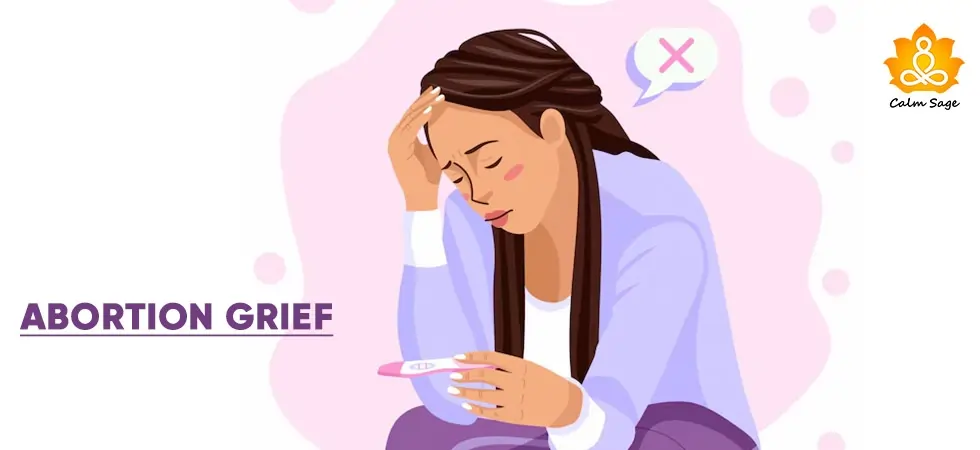Is Depression Anger Real? | The Link Between Depression And Anger

Emotions can be tough to deal with and especially when they are the “inevitable” ones like anger. Anger is one of the most common natural emotions that we all experience at one point in our lives whether we like it or not. It is often believed that anger is a negative emotion, but that’s not true. Anger can be righteous as well and even act as a motivator at times.
But, that’s that. There are times when we feel angry suddenly and without a reason. This anger lives on long after it manifests. This can be when you suddenly lash out at someone, can’t seem to control your emotions at the smallest inconvenience, and are always on defense.
When the anger creeps up and stays, it can be a sign of depression – whether you realize it or not. When you’re living with depression, emotions and feelings such as anger, frustration, helplessness, worthlessness, etc. are all directed not only toward others but also inwards aka toward yourself.
This inward channeling of anger can be called “angry depression”. Keep reading to explore the curious relationship between depression and anger, how it looks, and how you can cope with angry depression.
Anger And Depression: The Differences

Depression is a mental health condition that causes persistent feelings of sadness and hopelessness toward life. It can also result in loss of concentration, sleep issues, loss of interest in things you enjoy, and self-doubt. Depression is a diagnosable disorder and you can find the diagnosis criteria in the DSM-5.
On the other hand, anger is not a diagnosable condition but a natural emotion. While depression may not be experienced by all, anger is an inevitable emotion that we all experience from time to time. Feeling angry and frustrated is something that comes to us naturally and while it can be uncomfortable, it is a common emotion.
The one thing that I can tell you is that persistent anger can be a major symptom of depression. In men, angry depression can be explosive and violent while in women, depressive rage like this can be subdued. Anger and anger issues can be a part of the depression diagnosis process, but not always.
Righteous anger or healthy anger can be good as long as it does not interfere with and harms your relationships, performance, and mental health. Even then, anger does not always lead to a depression diagnosis.
Angry Depression: How It Looks
Anger can have different forms when it comes to depression. Here is what anger looks like when in depression;
1. Increased Irritability:
While increased irritability is a symptom of depression when it comes to anger in depression, this symptom can make you snap at others, feel annoyed at little inconveniences, and even cause you to respond negatively.
2. Increased Rage:
More than irritability, when you express your anger and rage outward by reacting violently toward others, then it can also be of concern. This kind of depression rage can be unhealthy and harm relationships.
3. Anger Attacks and Outbursts:
Anger outbursts are common but when you react to something with intense and sudden anger, it’s called an anger attack. It can also be a common type of anger in depression. These outbursts and attacks can be triggered by small matters and can be unexpected.
Depression And Anger: The Connection

There have been studies that show that chemical imbalances in the brain can be a reason why angry depression exists. Freud believed that depression comes when anger you experience is directed inward aka towards yourself, rather than expressing it outwards. This inward anger can worsen your depression and can create a never-ending cycle of negativity.
This kind of anger can also give rise to your inner critic and can start a vicious cycle of self-doubt, shame, and low self-worth.
Other times, the depression and anger is turned outward and can make you lash out and snap at others. Depression is believed to amplify the negative emotions that are already in us and when you lose the ability to control them properly, it can make you turn that anger outward toward others.
Gradually, if not controlled and left untreated, it can cause troubles in your personal, social, and professional life. Here’s an example; the inability to deal with and control anger can make you lash out at yourself or your coworkers at work.
How to Treat Angry Depression?
Treating angry depression is the same as treating depression. If your symptoms are mild, then psychotherapy can be recommended, but if your symptoms of depression are severe, then medications can be prescribed to help deal with the feelings of anger, irritability, and rage.
1. Therapy:
Emotionally-focused therapy can be recommended to treat adaptive and maladaptive anger. Adaptive anger is when your anger motivates you towards a positive action while maladaptive anger is when it causes you to react negatively.
2. Medications:
If your angry depression is out of control, then a doctor may recommend medications to help you cope with anger.
3. Anger Management Techniques:
To deal with anger in depression, you can use anger management techniques to cope with your anger. Here are some you can try!
4. Practice Deep Breathing:
Another thing you can do to cope with angry depression is to practice deep breathing. 4-7-8 breathing is one breathing practice that can help you calm yourself down and control your breathing when you become too distressed.
5. Reach Out To A Support System:
If you are unable to deal with angry depression, you can reach out to your support system as well. When you talk to someone, you can get helpful advice on how you can calm yourself down. If you don’t have a support system, you can consider joining a support group online. This way you can learn from others’ experiences.
6. Seek Professional Help:
If your angry depression is making it hard for you to concentrate on your daily life and negatively affecting your relationships, then you can consider seeking professional help.
A therapist can help you figure out the cause of your depression and anger and can give you tools to cope with your angry depression effectively.

Great for a large network of licensed therapists
-
$60 to $90/week, billed every 4 weeks
-
Therapy via messaging, phone, or live video chat
-
Flexible cancellation at any time
20% off your first month

Great for CBT Based therapists
-
$40/week, billed every 4 weeks
-
Therapy via messaging, phone, or live video chat
-
Specialization for CBT based Therapy
20% off your first month

Best for Treatment Plants
-
$60 to $90/week, billed every 4 weeks
-
Therapy via messaging, phone, or live video chat
-
Flexible cancellation at any time
$100 off your first month with code SPACE
Wrap-Up
Feeling grouchy and angry is OK from time to time, but when the anger turns negative and begins to worsen your depression, then it can be something serious. If you’re constantly on the verge of snapping, then you may be struggling with angry depression. While depression and anger are not the same things, they can be connected.
If you’re struggling with depression and anger together, then speaking to a professional might help you understand the cause of it and how to effectively cope with anger and depression.
I hope this article helped you understand the link between depression and anger issues. For more, you can write to us at info@calmsage.com or DM us on social media. You can also share your thoughts in the comments below.
Take Care!




















